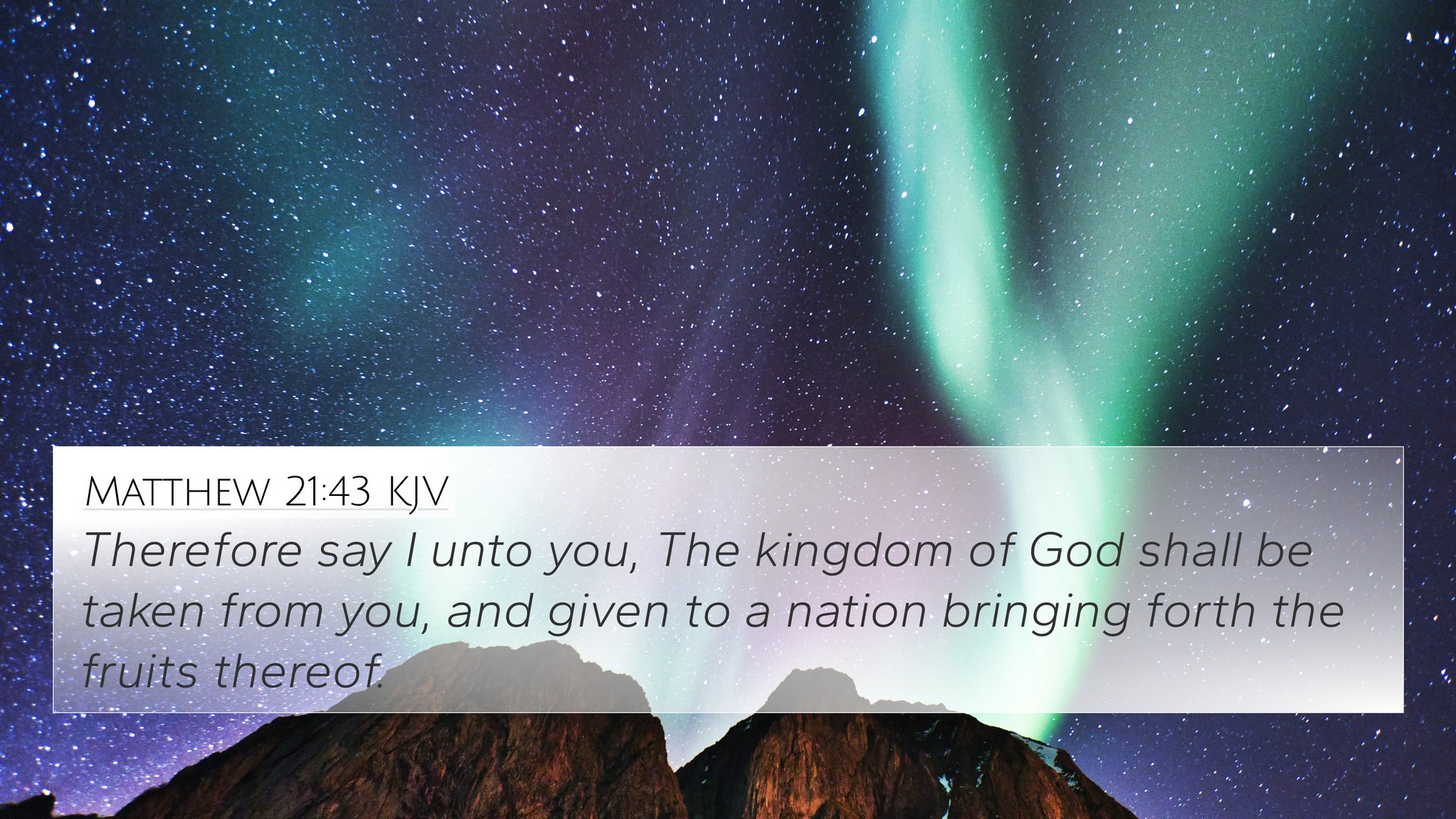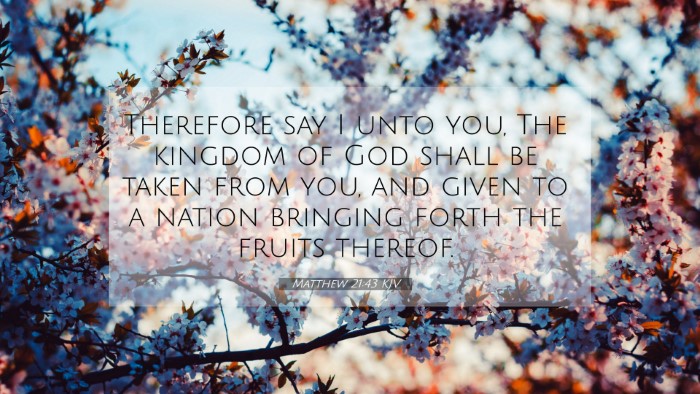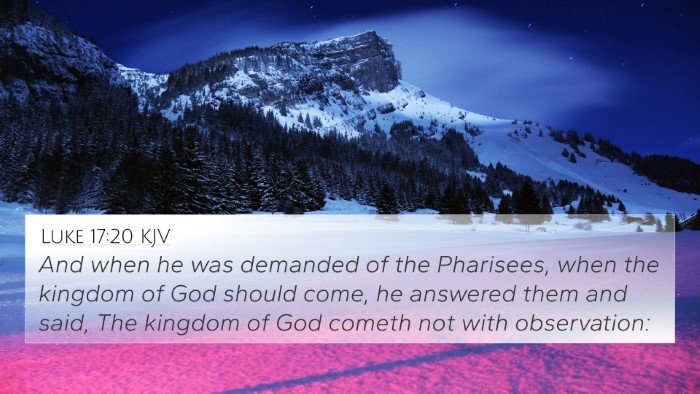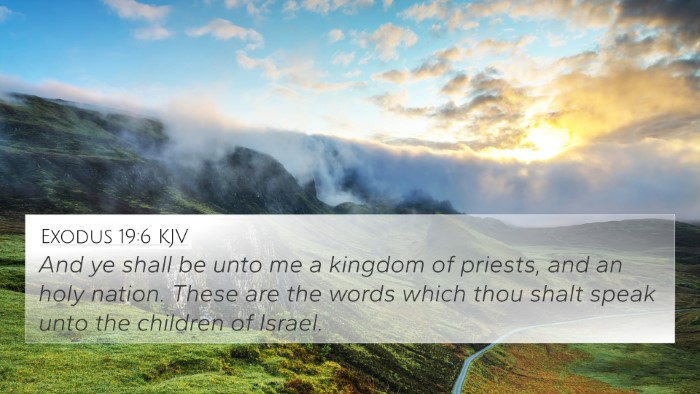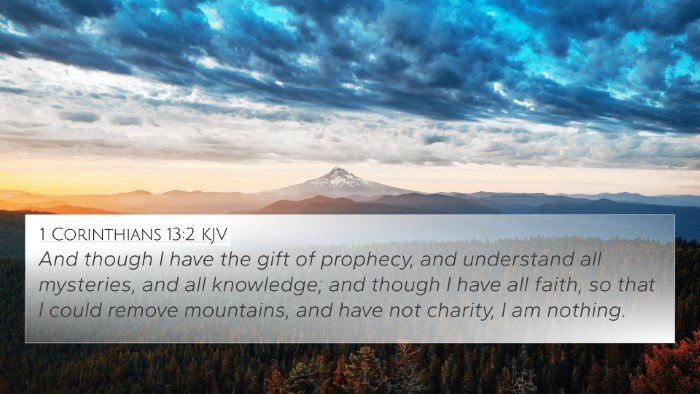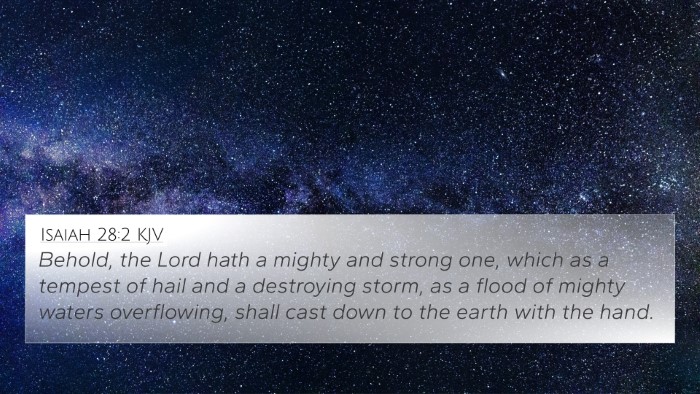Understanding Matthew 21:43
Matthew 21:43 states, "Therefore I say unto you, The kingdom of God shall be taken from you, and given to a nation bringing forth the fruits thereof." This verse carries significant theological implications regarding the transfer of God's favor and the responsibilities associated with His kingdom.
Exegesis and Context
This verse is found at a pivotal moment in the Gospel of Matthew, wherein Jesus addresses the religious leaders of Israel. It is part of the parable of the wicked husbandmen, which serves to highlight the failure of the Jewish leaders to be the caretakers of God's vineyard (the nation of Israel).
Insights from Commentaries
- Matthew Henry: Henry emphasizes that the privileges of the kingdom of God are not guaranteed to one group or nation. Instead, they are extended to all who bear fruit for the kingdom. This highlights the divine expectation for believers to produce good works and righteousness.
- Albert Barnes: Barnes interprets this verse as a warning to Israel’s leaders about their imminent loss of spiritual privilege. He suggests that the 'nation' refers to the Gentiles who would embrace the gospel. This transition marked a new phase in God’s plan for redemption.
- Adam Clarke: Clarke notes the historical context of the Jewish leaders’ rejection of Christ, indicating that this rejection leads to a significant spiritual shift. He contemplates the nature of the "nation" mentioned and points towards the early Christian church as a new entity, destined to fulfill God's intentions.
Thematic Connections and Cross-References
Matthew 21:43 connects thematically with several other biblical texts, emphasizing God’s sovereignty and the principles of stewardship. Below are key cross-references:
- Luke 20:16: This parallel passage in Luke reiterates the message of judgment against the unfaithful stewards of God's vineyard.
- Romans 11:17-25: Paul discusses the grafting of the Gentiles into the promises of God, illustrating the shift from Israel to the church.
- 1 Peter 2:9: Peter describes Christians as a royal priesthood, emphasizing the new identity that believers receive.
- Matthew 22:9-10: The parable of the wedding banquet further emphasizes the invitation to all, not just the initial invitees (the Jews).
- Hebrews 10:29: This verse serves as a warning against the rejection of God's grace, akin to what was happening in Israel.
- Galatians 3:28: Paul declares that there is neither Jew nor Gentile, reflecting the inclusive nature of God’s kingdom.
- Acts 13:46: Paul turns to the Gentiles, indicating the very act of engaging those outside of Israel as instructed by Jesus.
Key Takeaways
The implications of Matthew 21:43 are profound for understanding the dynamics of God's kingdom. Here are the significant lessons drawn from this verse:
- Fruitfulness: The verse stresses that being part of God's kingdom requires active participation and bearing fruit.
- Responsibility: It serves as a reminder that with privilege comes responsibility; those who are entrusted with the blessings of God must not take them for granted.
- Inclusivity: The kingdom of God is open to all nations and peoples, breaking down the barriers once held by Israel alone.
Application for Believers
In applying the truths of Matthew 21:43, believers are called to examine their own lives in light of the stewardship entrusted to them. This includes:
- Engaging actively in faith and community.
- Pursuing righteousness and good deeds as fruits of the Spirit.
- Recognizing the global and eternal nature of God's plan.
Final Reflections
Matthew 21:43 encapsulates a crucial transition in the biblical narrative, presenting an opportunity for growth, reflection, and deeper understanding of one’s faith. Believers are urged to actively cross-reference these themes throughout Scripture, drawing parallels and expanding their understanding of the connectedness of God’s message.
Through careful study and meditation, using tools like a Bible concordance or a cross-reference guide, insightful connections can be made, enriching one's spiritual journey and understanding of divine truths.
